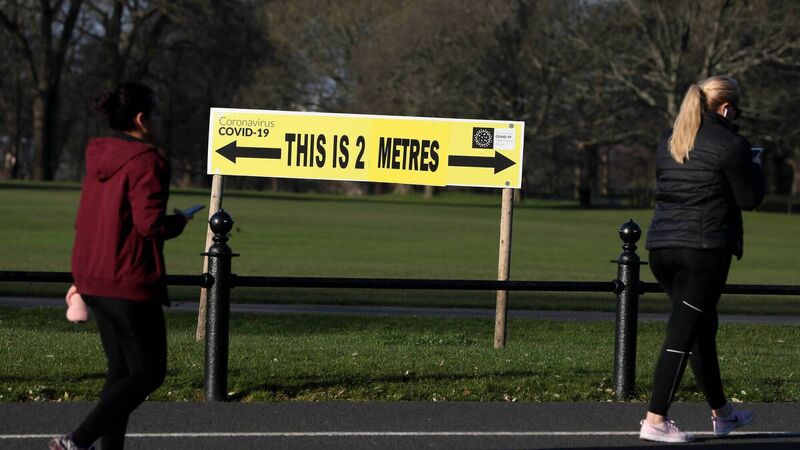Sub-committee to finalise new plans for living alongside coronavirus

The plan could see visits to homes across Dublin limited to six people from just two home, rather than the current three. File picture.
The Cabinet sub committee on Covid-19 will meet today to finalise new plans for living alongside the virus.
Under the plan, counties or regions would be graded on their current level of the disease and restrictions imposed accordingly.
The plan could see visits to homes across Dublin limited to six people from just two home, rather than the current three.
Places which are deemed to be at the upper end of the scale would also see closures to certain businesses, with the opening of Dublin's "wet pubs" next week in severe jeopardy due to the rise in the numbers of cases of the virus in the capital.
It is understood that there will be new guidance on international travel as the aviation and travel industries continue to call for an opening up of restrictions.
The plan will be discussed at today's meeting and signed off at tomorrow's full Cabinet meeting, where a €600 million winter plan for the health service will also be discussed.
The Cabinet sub committee will also discuss the return of spectators to sporting events in areas which outbreaks are under control. This plan could see up to 5,000 people allowed attend events at large stadiums like Croke Park and Páirc Upaií Chaoimh.
The 14-day incidence of the virus in Ireland has soared above 40 per 100,000 of population in the last week as large outbreaks are detected in Dublin and Limerick in particular. In parts of Dublin, that incidence is nearly 80 per 100,000.
Yesterday's figures saw a total of 255 cases nationwide, with 156 in Dublin, fueling concerns around the level of transmission in the county.
Speaking to Newstalk Breakfast, Sinn Féin's health spokesperson David Cullinane said that the government must avoid a "snakes and ladders approach" to the plan.
"The most important thing is there is transparency: that we fully understand why a county, city or region would be in any phase at any given time.
"It's important we keep this very simple: that we keep the message very simple, and people clearly understand what is expected of them.
"Obviously that has to be underpinned by public health guidelines. We have to keep people safe. But my fear is the more we complicate this, then you start to lose people. Let's keep the message simple.
"What we need to do is avoid a kind of snakes and ladders approach in terms of these different phases - of counties going up and down, but no logic, with people not understanding why they're at level two or level three."





